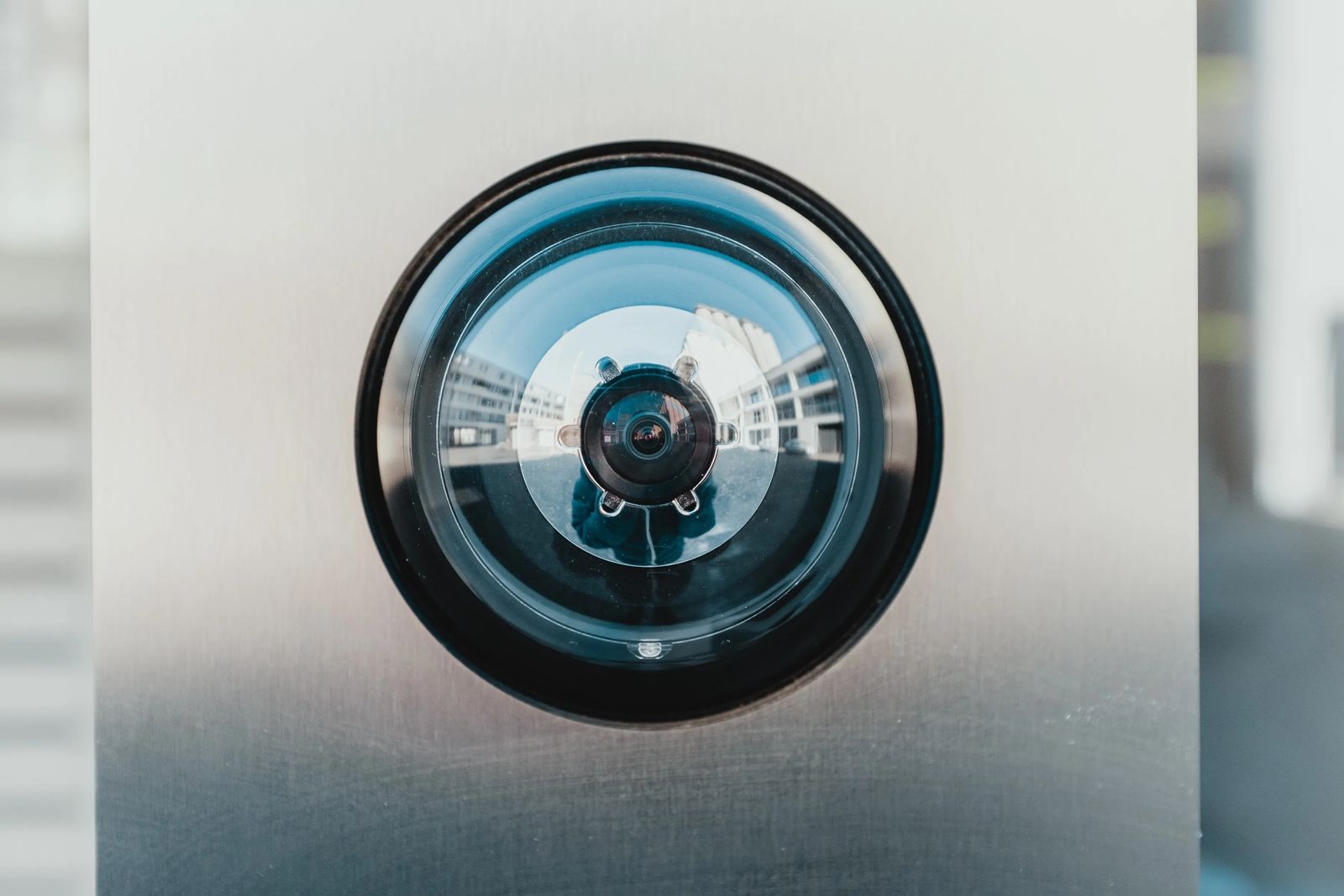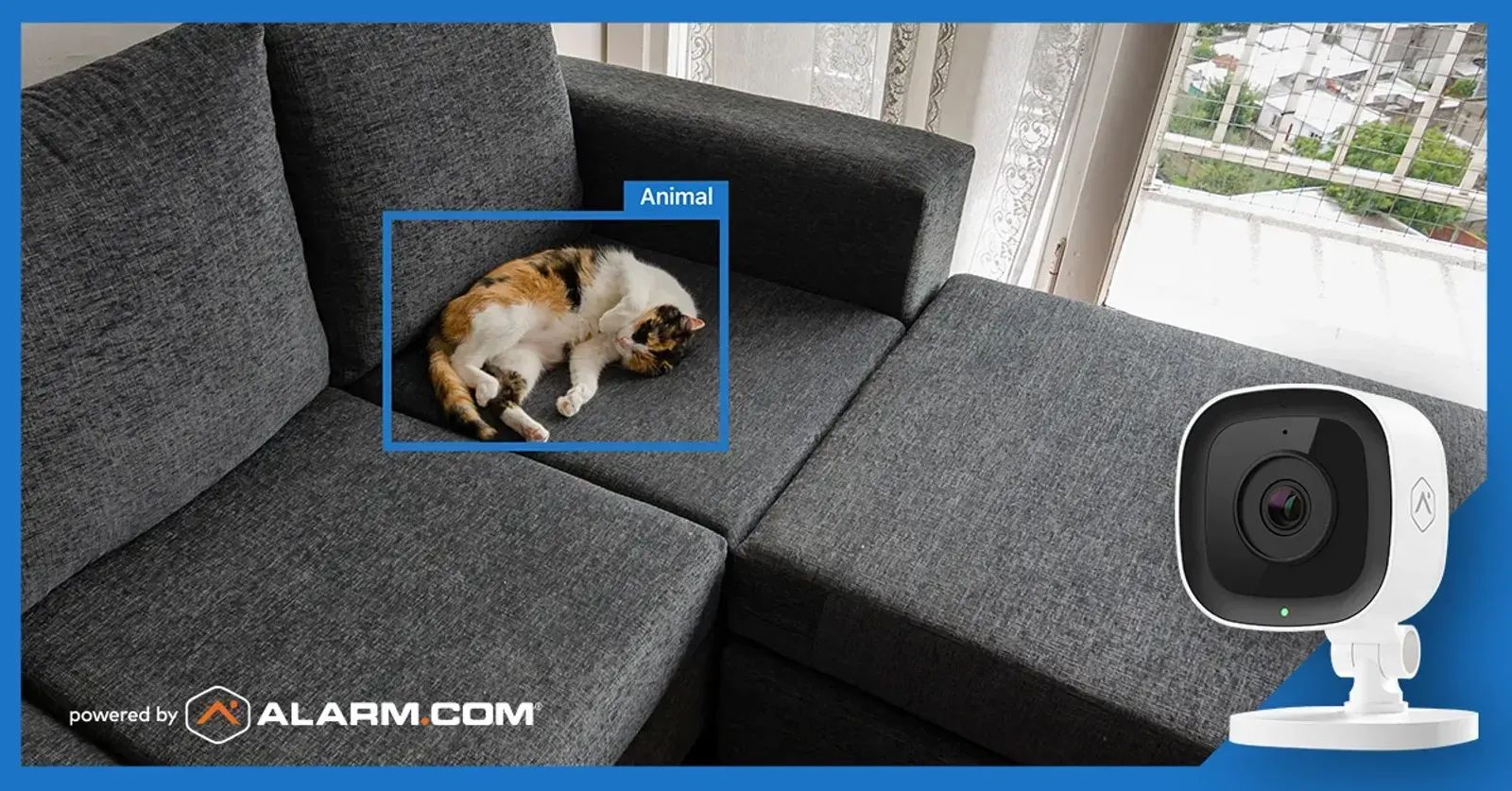
Wired vs. Wireless Security Cameras
When deciding on the type of camera to purchase, how do you know which one is the best for you?
Wired and wireless security cameras each have their own pros and cons. Wired security cameras are a more reliable option as they do not require an internet connection. But, wireless security cameras can be easily installed anywhere in your home or business with no wires. Wireless options are perfect for homeowners with DIY capabilities who want to monitor their property in any situation.
Wireless power cameras are also an eco-friendly option since there is no need for additional power cords or plugs that could cause a fire. While wired security cameras may offer better sound quality, wireless security camera costs are much less expensive. There are many factors to consider when choosing which type of camera is best for you. See below to find out what benefits come with a wired or wireless system and make an informed decision.
What is a Wired Security Camera?
A wired security camera is a camera that is connected to a power source and wi-fi. These are usually more reliable as they do not require wi-fi for sound or video feed. This allows for constant power, which provides the best quality video feed possible.
These are good for homeowners who want to monitor their property as well as business owners who have a need for constant power sources.
The Pros of Wired Security Cameras
Wired cameras offer a more reliable option as they do not require WiFi. It is an excellent choice for homeowners with DIY capabilities who want to monitor and record their property in any situation.
This type of camera provides better sound quality, which means that you can hear conversations and noises in the room if they occur. Wired systems also have a longer range of vision than wireless security camera systems.
The Cons of Wired Security Camera
One of the cons of wired cameras is that they require a constant power supply. This means that if the camera is outside, you will need to run an extension cord that can be seen by passersby. If the camera is inside, you will need to run the wire through your house and then plug it into your TV or monitor.
This may not be such a big deal for homeowners who want to monitor their property from inside their homes, but this could be an issue for business owners who want to keep an eye on their properties from within their offices or warehouses.
Wired security systems also limit where you can install them because they require wires and outlets. For homeowners with small yards, this may not be an issue but it could be for those with larger yards. Wired are also more expensive than wireless systems and many people find them more convenient because it is easy to install without any wiring at all.
Why Choose a Wired Security Camera?
A wired security camera offers a more reliable option as they do not require an internet connection. These are also more cost-effective than wireless systems because they will not have to be constantly replaced because they are not battery-powered.
However, they are less convenient and are not easy to install in the home or business compared to wireless cameras. The user is restricted by cords and wires that can cause tripping hazards, especially in public areas. These cameras also require professional installation of wiring and power supply, and could be fire hazards if not installed properly.

What is a Wireless Security Camera?
Wireless security cameras are typically used in residential homes and small businesses. These cameras can send a signal to a DVR wirelessly or through powerline communication.
They are perfect for people who do not want the hassle of running cables from their camera to a DVR. The powerline communication is an encrypted signal that runs through your existing electrical wiring, so you don’t have to worry about the signal being intercepted by hackers.
The Pros of Wireless Security Cameras
One of the most appealing qualities of the wireless security camera is that it offers a DIY installation option.
With a wired security camera, you need to run wires from the camera to a recorder or monitor your home. But with a wireless camera, you can install it anywhere in your home or business and there is no cable! This is especially beneficial for those who may not have an IT background and don't know how to run a cable or install a camera system.
Wireless cameras also benefit the environment as there is no need for any plugs or cords which could start a fire or cause an accident.
Wireless cameras are less expensive than wired security cameras because you don't need to purchase additional materials like wires, connectors, and outlets. You'll spend more money upfront, but then you'll save money on ongoing costs like running wires in your home and having to replace them over time.
The Cons of Wireless Security Cameras
A wireless camera is an eco-friendly option, but there are many cons to consider, such as the amount of data being transmitted from your camera to your wireless network.
You may not be able to stream high-quality video or view it clearly if your camera is transmitting too much data or if you have a weak wireless signal. Wires can also affect the transmission of data, so wireless systems typically don’t work well in rural areas with a lot of interference from trees. So even with a wireless system, your camera will need to be plugged into an outlet or it can be battery powered.
It can be monitored by anyone who has access to those frequencies, which presents a security risk for homeowners. Some wireless systems may require a technician to install them and there’s a cost associated with that service.
Finally, wireless security systems often come with limited warranty options and customer support – wired cameras come with up to three years of nonstop service and 24/7 customer support.
Why Choose a Wireless Security Camera?
A wireless security camera is perfect for DIYers who want to save money and avoid any more power cords in their homes.
If you are already a homeowner, you probably have some experience with installing a security camera system. There are many benefits of a wireless security camera that make it the best choice for homeowners.
Wireless cameras can be installed anywhere without having to drill any holes or wires into your walls. This gives homeowners the opportunity to place their cameras where they need them most. You will also have no worries about plugging your camera into an outlet as you can simply connect it to your WiFi network and power it with batteries.
Since there are no wires, there is less chance of being hacked and more peace of mind that your property is being monitored 24/7 without any hassles. Wireless power cameras also give homeowners an eco-friendly option which is more environmentally friendly than wired systems.

Advantages and Disadvantages
If you will compare wired vs. wireless security cameras, wired security camera systems are a better choice for homeowners who want to monitor their properties in any situation.
Homeowners can set them up outside or inside to monitor activity. These are not reliant on an internet connection and can be installed instead of wireless power cameras.
A wireless camera is a perfect device for homeowners with DIY capabilities who want to monitor their property in any location without any wires, but they are required to be connected to WiFi.
Wireless cameras also offer lower costs than wired options because there is no need for additional power cords or plugs. However, the sound quality on wireless options is not as good as wired systems.
Cost and Installation
The wireless camera is more affordable than a wired security camera. The cost of installation for wireless power camera systems is inexpensive, while wired security cameras will cost an average of $300-$400. You also have to run cables and wires for wired cameras, which can be difficult and time-consuming.
A wireless camera is a DIY installation that requires no wires or cables. Often times all you need is a power outlet, network, and camera mount to start monitoring your property. Wired security systems require running wires from the camera to the main unit, which can be difficult and time minimizing considering how much wire is needed.
Power Supply
Wireless cameras are powered by batteries, or alternatively, they can be plugged in. Wired cameras have power cords that need to be plugged into a power supply. Wireless cameras are perfect for customers who want to install them in an area where there is no available power source.
Setting Up
A wired security system is a more reliable option for homeowners who want to monitor their property in any situation.
On the flip side, wired security cameras may offer better sound quality than wireless systems. A downside of wired security systems is that you will need to run wires from wherever your camera is installed, typically near an electrical outlet, which can be more difficult than installing a wireless system where you just need to plug it in.
Concerns
It's important to note that wireless security cameras require the internet, which could be a complicated process for someone who is not tech-savvy. But, by owning and operating your own internet service provider (ISP), you also have access to the data from your camera 24/7.
Wired security cameras do not require an internet connection, so you don't need to worry about any possible connection issues.
Another negative aspect of wireless security cameras is that they can be hacked or interrupted by someone in the same vicinity as the camera. In order to keep this from happening, it is crucial that you use encryption and strong passwords on your device and any associated devices.
Conclusion
Wireless home security cameras have become more and more popular in recent years. They provide a number of advantages over wired security cameras, including ease of installation, less expensive wiring, and the ability to be moved around. Wireless security cameras are also easy to hide and are not as visible as wired security cameras.
However, wireless home security cameras still have some disadvantages. They can be very expensive, need the power to operate, and have limited range and battery life. For example, when a wireless camera is farther than 300 feet away from the receiver, it needs a power supply. Wireless cameras also require a power bank or rechargeable battery to be charged when the camera is not plugged into an outlet.
Wireless home security cameras are a great option for many homes, but they are not without their disadvantages.
It is up to you to choose between wired vs wireless security camera systems. Make sure you consider all the pros and cons before deciding which one you will buy.
